by Zain Jaffer
Free speech is under attack everywhere these days. In early September 2024, Brazil banned Twitter/X after its owner Elon Musk and the company refused to comply with the orders Brazilian Supreme Court Justice Alexandre de Moraes [https://www.nytimes.com/2024/08/30/world/americas/brazil-elon-musk-x-blocked.html].
Separately, Pavel Durov, the CEO of mobile messaging operator Telegram, was arrested in France in late August 2024 for refusing requests to censor the platform and provide information for alleged child porn, terrorist, drug trafficking communications done on the network [https://www.reuters.com/world/europe/telegram-messaging-app-ceo-pavel-durov-arrested-france-tf1-tv-says-2024-08-24/].
Additionally, there have been recent arrests in the UK for certain social media posts [https://www.foxnews.com/media/uk-government-scouring-social-media-arrest-people-sharing-harmful-riot-footage-regardless-intent]. Also, Meta/Facebook platform CEO and founder Mark Zuckerberg recently admitted to agreeing to censor posts critical of the Biden administration and also those related to the pandemic in 2021 [https://edition.cnn.com/2024/08/27/business/mark-zuckerberg-meta-biden-censor-covid-2021/index.html].
I am not a free speech absolutist. The First Amendment of the US Constitution [https://constitution.congress.gov/constitution/amendment-1/] that guarantees free speech and the press, and other rights such as freedom of worship and assembly are not absolute. US Supreme Court Justice Oliver Wendell Holmes Jr 1919 opinion about free speech not including the right to cry “fire in a crowded theater” means that it does not include the right to cause harm to people or the public [https://en.wikipedia.org/wiki/Shouting_fire_in_a_crowded_theater]. There are definitely cases where an individual does not have the right to say something if it is a clear and present danger to cause harm.
The problem is where to draw the line. Give too much freedom to an individual, and you run the risk of real harm to society, such as inciting a rebellion, a panic, or a riot. On the other hand, if you use the strongarm method to suppress freedom of speech, you become a banana republic like some Third World basket case countries. There was a reason that the founding fathers made free speech as one of their first amendments.
Complicating matters is the fact that some of those calling for censorship are simply protecting themselves. The statements they want to censor might actually be beneficial for the public to hear, but not to them as governors of the state. This has become so common, and because self defense and preservation is so ingrained as an instinct, that this plot twist has become a staple of movies and fiction.
In the 1971 US Supreme Court case of The New York Times versus the US Government, the NYT wanted clarification from SCOTUS whether the Government was justified in using the 1917 Espionage Act to prevent the publication of the Vietnam War era Pentagon Papers. The Government argued that publication of the Pentagon Papers would cause “irreparable injury to the defense interests of the United States” [https://en.wikipedia.org/wiki/New_York_Times_Co._v._United_States]. The NYT and subsequently the Washington Post and other US newspapers won the right from SCOTUS to publish the papers. Then US Justice Hugo Black said that the job of “the Press was to serve the governed, not the governors.”
In recent years we have seen leakages from Wikileaks as well as the statements of Edward Snowden disclosing the extent of government surveillance on ordinary individuals [https://en.wikipedia.org/wiki/Edward_Snowden]. More recently in September 2024, former US Labor Secretary Robert Reich argued in an oped in The Guardian about the possibility of putting Elon Musk under arrest like what was done to Pavel Durov [https://www.theguardian.com/commentisfree/article/2024/aug/30/elon-musk-wealth-power].
Free speech is not an absolute right. However these days, it seems that it is being positioned as a privilege and not a right. This is a dangerous development, and we should defend our rights and our free speech platforms where it makes sense to do so.
###



